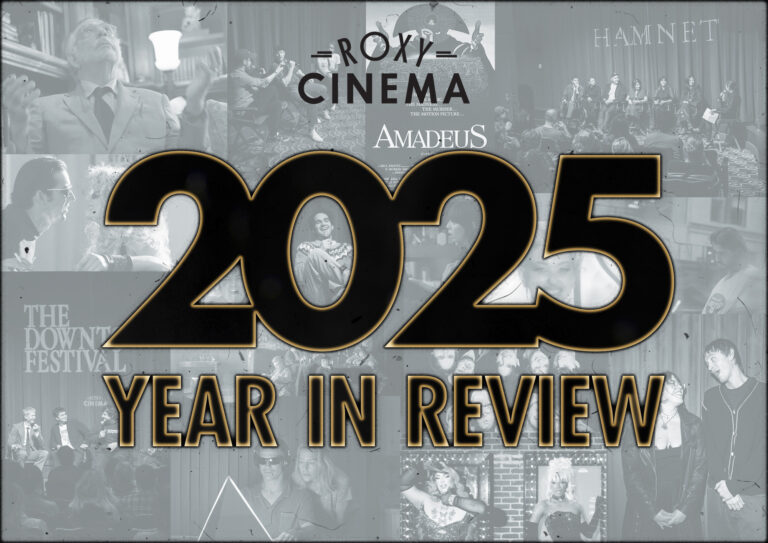Roxy All The Way: A Christmas Film Series
A journey through desire, darkness, and the undercurrents of tradition.
Christmas films are often synonymous with warmth, joy, and sentimentality—wholesome tales that wrap us in holiday cheer. But what if we looked at the holiday season through a different lens? What if we sought out a set of films that eschew the conventional trappings of Christmas for something darker, more complex, and far more morally ambiguous? Welcome to Roxy All The Way: A Christmas Film Series—one that takes us deep into the shadows of desire, power, and social constraint.
In this collection, we explore movies that may not appear on your typical holiday watchlist but offer profound meditations on human nature and societal structures. From gritty crime thrillers to the subtle undercurrents of class and power, these films make for a very different kind of Christmas viewing experience. If you’re looking for something unconventional this Christmas—films that challenge the boundaries of traditional holiday cinema, look no further! This edgy film series offers a much-needed departure from the predictable and the safe. Sometimes, it’s only through confronting the darker aspects of life that we can better understand the light.
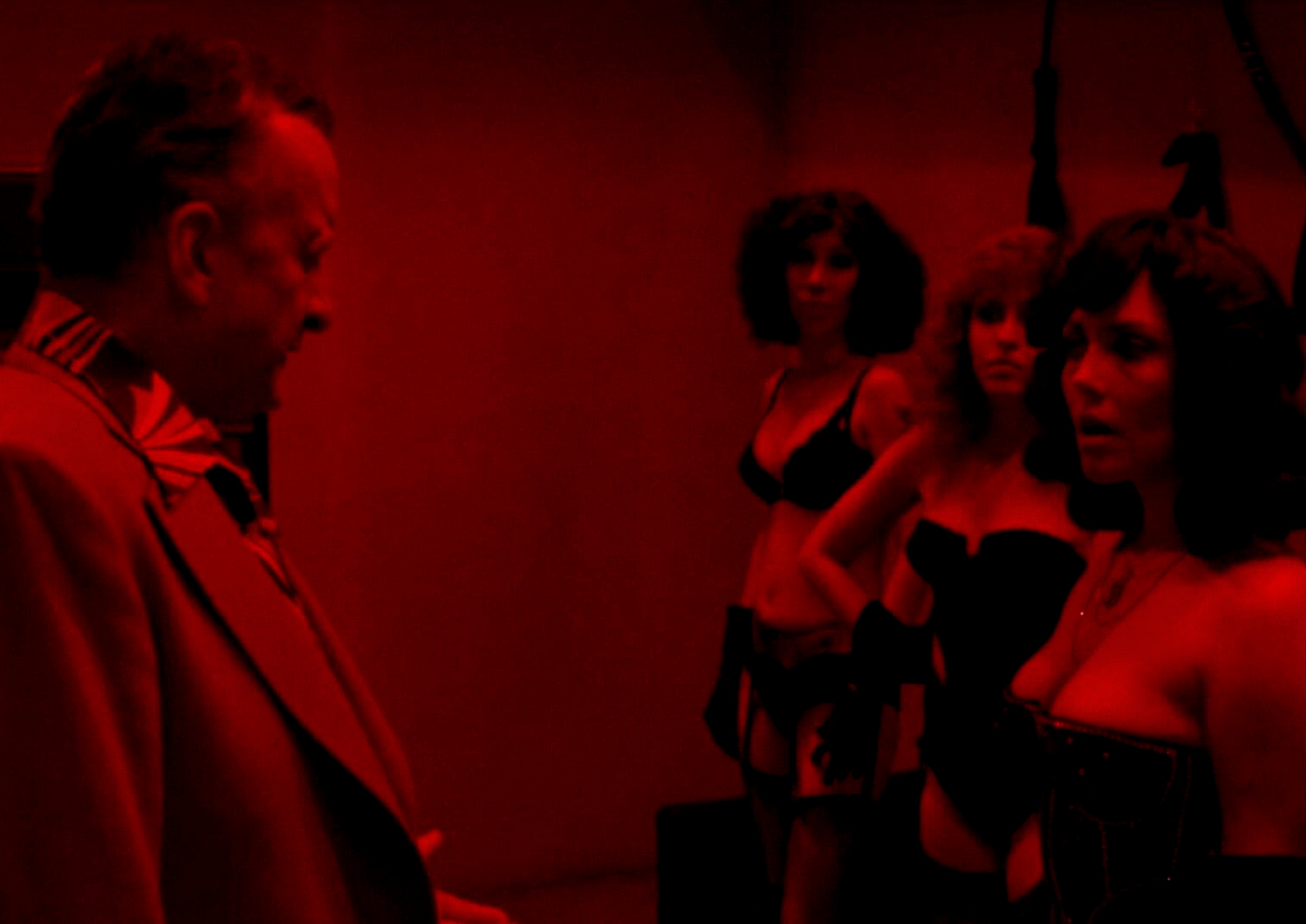
Scene from Hardcore
Hardcore (1979)
Paul Schrader’s Hardcore is not a film one would typically associate with Christmas, but in its own way, it is a study of isolation and the loss of innocence—a theme that can resonate deeply at the holidays. The film follows a devout Christian businessman, played by George C. Scott, as he embarks on a harrowing journey into the seedy underbelly of the adult film industry after his daughter goes missing. As he confronts the moral decay and sexual exploitation of the world around him, the film explores the tensions between personal morality and the broader culture’s often unspoken corruption. Hardcore isn’t just about explicit content; it’s about the pain of discovering the darker side of society—a theme that mirrors the discomfort we might feel when confronted with the imperfections of our world, especially during a season that idealizes family and togetherness. The stark contrast between the holidays’ traditional cheer and the raw despair of the film makes it an unexpected but compelling choice for this edgy Christmas film series.
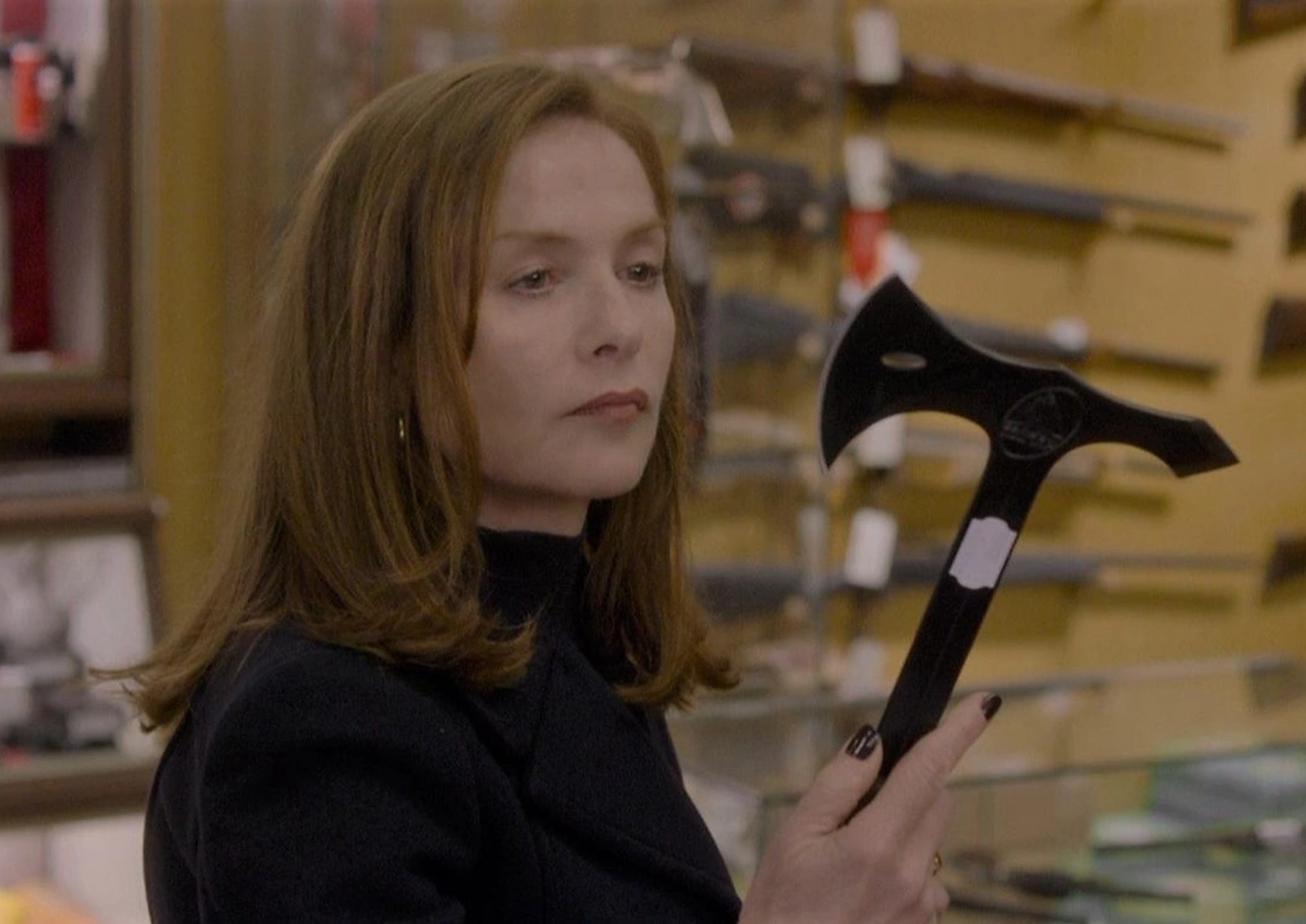
Scene from Elle
Elle (2016)
Paul Verhoeven’s Elle is a complex, provocative thriller that defies easy categorization. Starring Isabelle Huppert as Michèle, a successful businesswoman who is violently assaulted and then decides to confront her attacker without involving the police, the film explores themes of power, vengeance, and sexual agency. The psychological complexity of Michèle’s character and the morally gray territory she occupies make this a film that upends traditional narratives of victimhood and trauma. Set against the backdrop of a seemingly perfect bourgeois lifestyle, Elle quietly undermines the surface-level happiness that Christmas represents, suggesting that even the most pristine exteriors can hide deep-seated dysfunction. Michèle’s calculated, sometimes chilling responses to her assault, combined with her complex relationships, force us to reckon with uncomfortable truths about power dynamics, manipulation, and the line between victim and perpetrator. Christmas, after all, is not just about joy; it’s about navigating trauma, relationships, and power dynamics within the context of family and society, even when the facade of festive cheer is thin.
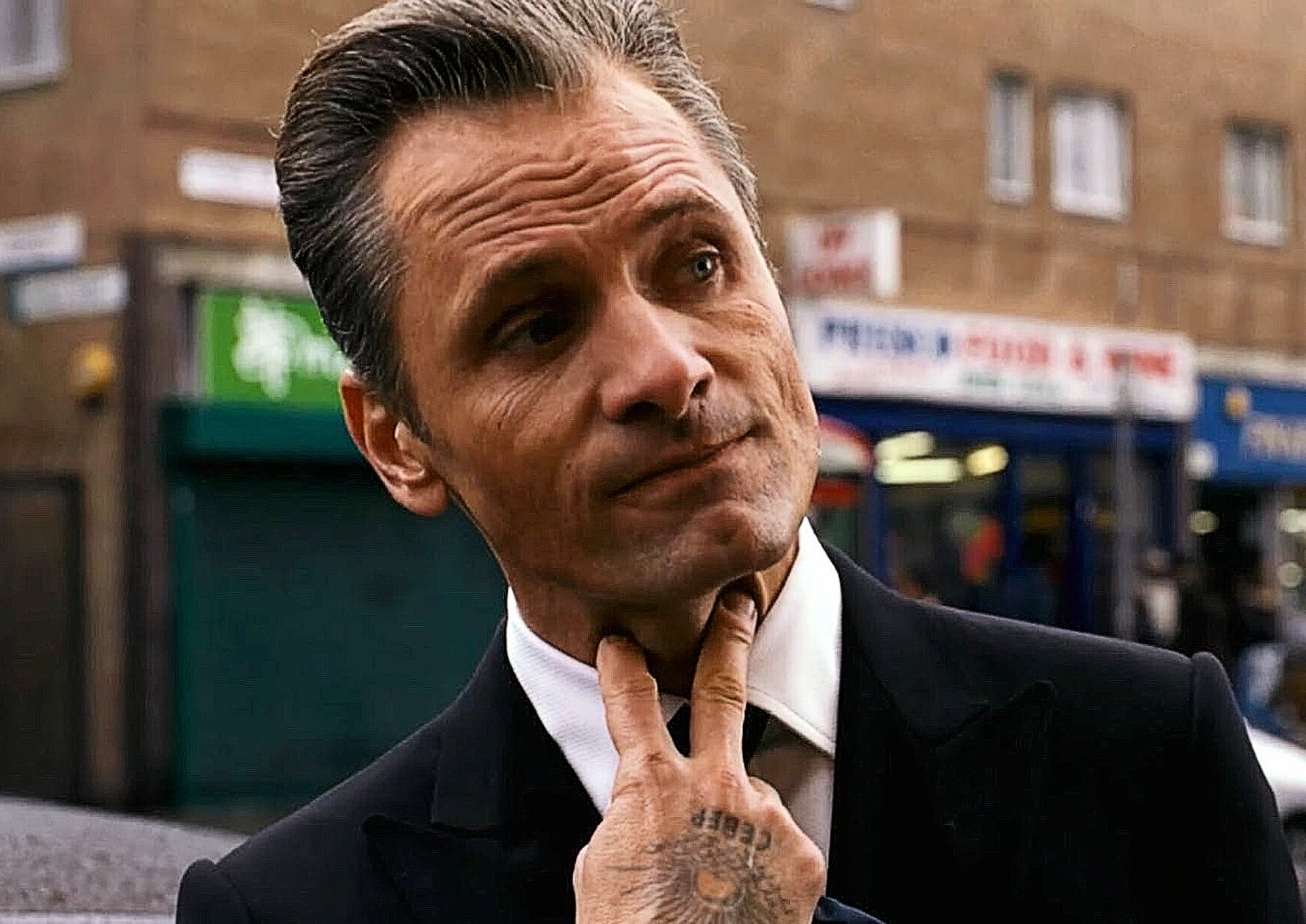
Scene from Eastern Promises
Eastern Promises (2007)
David Cronenberg’s Eastern Promises is a brutal and complex exploration of the Russian mafia in London, filled with violence, betrayal, and a chilling examination of identity. Viggo Mortensen’s portrayal of a morally ambiguous mob enforcer, Nikolai, is magnetic—his understated, stoic performance adds layers to the character’s tortured soul. At first glance, Eastern Promises may seem to have little in common with the holidays. But when you delve into its themes of family loyalty, power struggles, and the search for personal redemption, it takes on a deeper resonance. The bleak winter landscape of London, the icy atmosphere of the Russian mafia world, and the quest for identity are all metaphors for the emotional landscapes many people navigate during the holidays. In a season when people often grapple with expectations of familial harmony, Eastern Promises reminds us that family ties can be fraught with danger, deceit, and unspoken trauma. It’s a harsh reminder of how our sense of belonging can sometimes be shattered, especially when loyalty becomes a weapon.
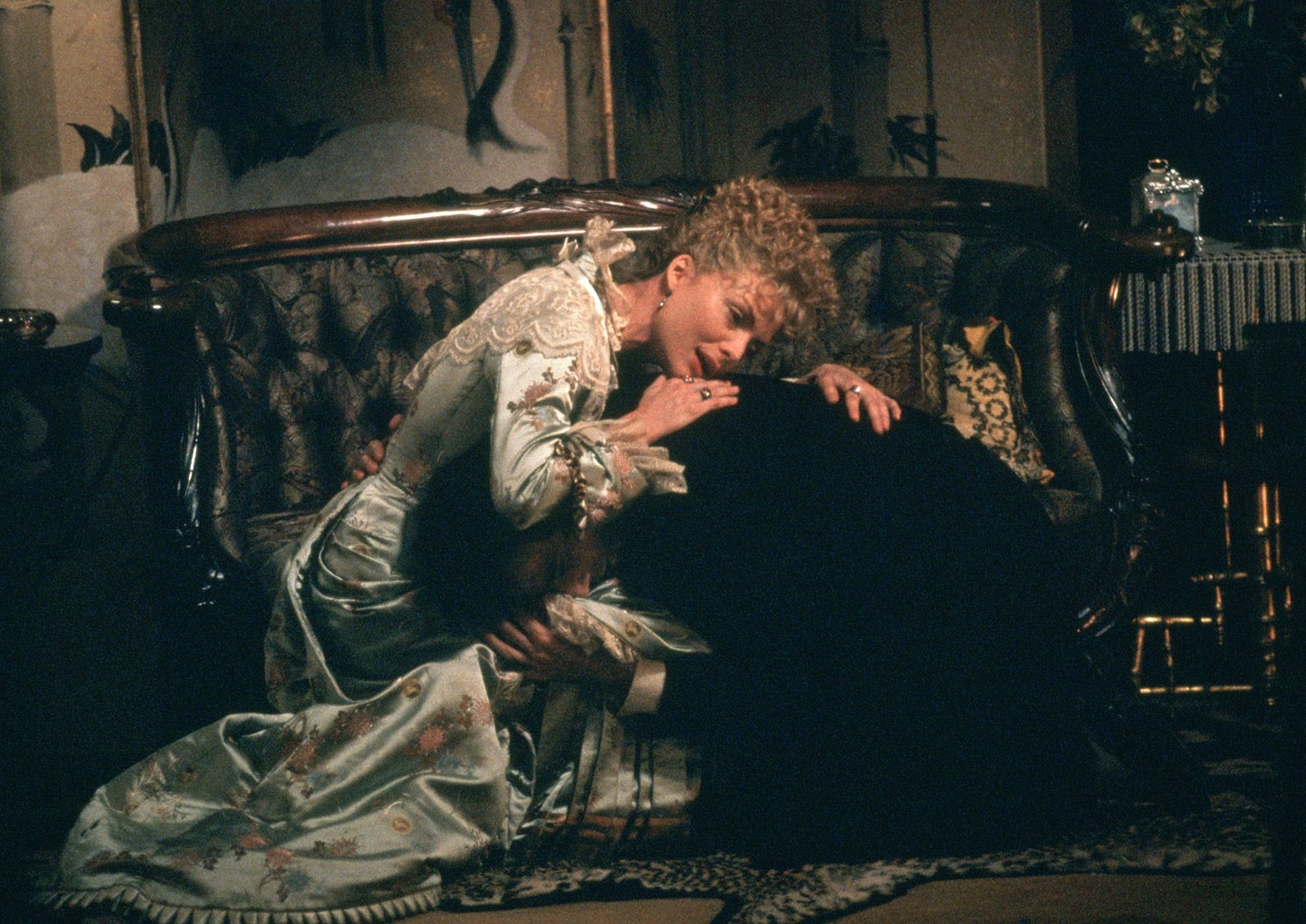
Scene from The Age Of Innocence
The Age Of Innocence (1993)
Martin Scorsese’s The Age of Innocence stands in stark contrast to the other films in this series in terms of style and tone, but its exploration of societal constraints and forbidden desire is just as edgy as the rest. Based on Edith Wharton’s novel, the film follows Newland Archer (Daniel Day-Lewis), a 19th-century New York socialite who is torn between his duty to marry a respectable woman and his illicit passion for her cousin, the mysterious and alluring Ellen Olenska (Michelle Pfeiffer). The film is set in an era of strict social codes, and much of its power comes from the tension between personal desire and societal expectations—a tension that has perennial relevance. At Christmas, we are reminded of the weight of tradition, family expectations, and the stifling roles we often feel pressured to play. The Age of Innocence explores this conflict in a way that feels particularly resonant during a holiday season when people often reflect on their place within families, their unspoken desires, and the sacrifices they make for the sake of tradition. While the lush period setting and opulent costumes might be in stark contrast to the modern grittiness of some of the other films in this series, the emotional turmoil of unrequited love and societal repression remains as sharp as ever.
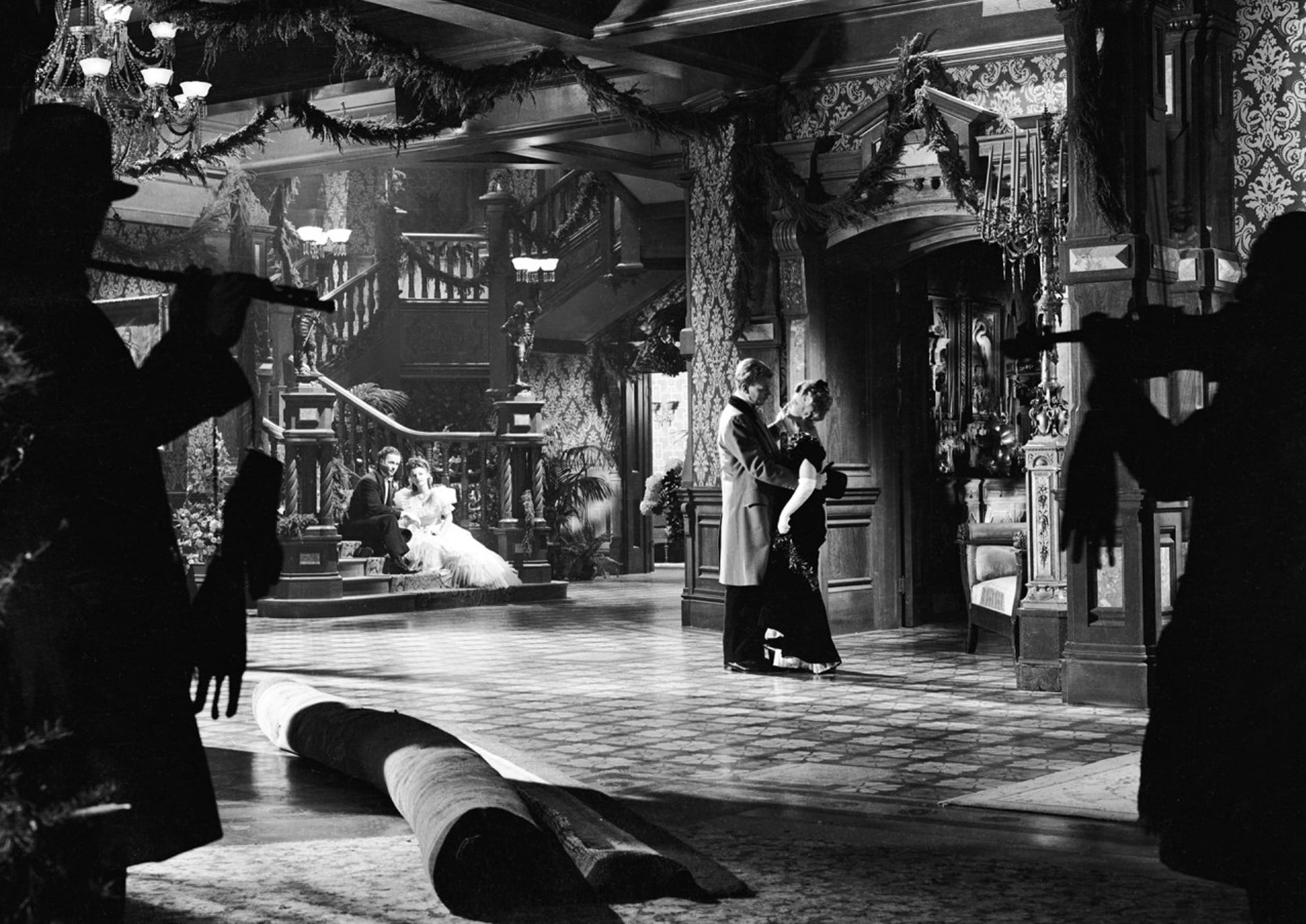
Scene from The Magnificent Ambersons
The Magnificent Ambersons (1942)
Orson Welles’ The Magnificent Ambersons is a forgotten masterpiece of American cinema, a film about the decline of a wealthy family in an unnamed Midwestern town at the turn of the 20th century. The film is filled with social critique, exploring themes of class, entitlement, and the impact of industrialization on traditional family structures. The narrative centers around George Amberson Minafer, a spoiled and arrogant young man whose family’s wealth and status begin to unravel. As Christmas approaches, the Ambersons’ illusions of grandeur and permanence begin to crumble, and the film takes on a melancholic, almost tragic tone. The lavish Christmas dinners and family gatherings are but a prelude to the inevitable decline of the family’s fortune—a poignant commentary on how quickly fortunes can be lost and how the ideals of the past are often incompatible with the realities of the present. Welles’ use of deep focus cinematography and the overall atmosphere of decline provide a haunting counterpoint to the warmth of Christmas. The film’s exploration of wealth, class, and generational conflict serves as a reminder that the holidays can bring both joy and despair, especially when family histories and societal expectations are so tightly intertwined.

